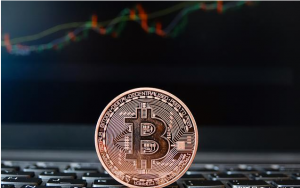
In 2013, the People’s Bank of China and five other ministries and commissions issued a notice on preventing bitcoin risks, which included this paragraph: financial institutions and payment institutions shall not price products or services in bitcoin, buy, sell or act as central counterparties to buy or sell bitcoin, underwrite bitcoin-related insurance business or include bitcoin in the scope of insurance liabilities, or directly or indirectly provide customers with other bitcoin-related Services include: providing customers with bitcoin registration, trading, clearing and settlement services; accepting bitcoin or using bitcoin as a payment and settlement instrument; conducting exchange services between bitcoin and RMB and foreign currencies; conducting bitcoin storage, custody and mortgage services; issuing bitcoin-related financial products; and using bitcoin as the investment underlying of trusts, funds and other investments. The key is this sentence “shall not directly or indirectly provide customers with other services related to bitcoin”, what do you mean by “indirectly” provide related services? Is buying and selling bitcoin with a bank account “indirectly”?
From the definition that follows, banks are prohibited from providing services related to bitcoin, such as bitcoin funds, bitcoin exchanges, etc. Transferring money between individuals without bitcoin brokering is not prohibited at all. But if the word “indirectly” is deducted, it doesn’t count, and the scope of indirectness is huge, depending on who has the power of interpretation. So this article is a rather vague statement that different people may have different interpretations, and if the above is not clearly defined, it is up to each organization to understand and implement it.
The exact extent of enforcement will vary from bank to bank. State-owned banks are more stringent, if familiar with the management of the management should know, encounter this kind of spirit is not clear, the most secure way is to implement the strictest standards (many local implementation of the policy layer upon layer is how to come), so as to ensure that no problem, so state-owned enterprises out of the idea of safety and not to take responsibility, certainly tend to be the strictest bottom line. The universe bank has issued a document on the system, buying and selling bitcoin transfers between personal accounts, which are not allowed and can stop the service if found. Other state-owned banks and larger banks will tend to do the same for risk reasons. However, as I said above, this “indirectly” is very open to interpretation, and the context does not mean that bank transfers between individual customers are prohibited, so some banks do not do what state-owned banks do, based on their own understanding. Because of this, there was a special call to China Merchants Bank and Pudong Development Bank last year to confirm that the response said that it was allowed and would not therefore restrict accounts, a response that seemed different from what many people remembered. In fact, even the universe of banks on this issue, is not clear, their internal line of documentation is only the original forwarding of ministry documents, stop service requirements are the spirit and principles of the higher, not operational details, so the spirit of this implementation in the lower sector is also different, with the passage of time is also bound to have a discount, for many years, in principle, certainly in accordance with the spirit of implementation, no one said stop that It should continue to be implemented.
But “in principle” “should” how to understand, how to operate, that will be mastered by themselves, people with experience in administrative work of large institutions should understand. Why is this so? This is very understandable, there is no clear definition at the top, how can the middle layer to arbitrarily define it, anyone who has become the leader of the relevant position in the bank, should take a similar operation: do not give any clear definition, let the grassroots to understand and master, so as to leave themselves in and out of space, and then adjust the overall spirit according to the wind direction, to the grassroots guidance. The actual fact is that there is no clear bank restriction on the transfer of virtual coins, nor is there a clear bank restriction on the purchase and sale of virtual coins, which has been in an up and down ambiguous space for the above reasons, and everyone is not in the same situation. It is also important to look at the overall wind direction, after all, the operating space is relatively large.
As for the freezing of cards, not only do people outside the circle not understand, many people inside the circle also do not understand, the real lockdown type of freezing of cards, is operated by the public security organs, the reason is often the receipt of black money, this is not the behavior of the bank. The bank’s frozen card, the starting point is basically too large an amount, too much water, for anti-money laundering or account exception reasons, after a certain period of time will be unfrozen on its own. These two aspects are not the same in nature, in terms of motives, principles, practices are fundamentally different, many people are unaware of them, and they are all mixed up.
We can look at this matter from the bank’s point of view, similar to any institution or enterprise, the bank’s operation depends on the system, and all kinds of behavior is based on the system, the implementation of a system requires conditions to trigger the freezing of accounts, the operation is necessarily based on the conditions to start the system after the implementation For example, if an account is frequently transferred, the amount is huge, and the data is monitored, the system should be implemented according to the freeze for a period of time, this is well understood. So if there is a “restriction on bitcoin trading account transfers”, what are the conditions that trigger it? Can a bank know that a transfer is for a bitcoin transaction? Banks don’t have that ability, so they wouldn’t trigger it for no reason, it’s more of a reactive monitoring system for financial anomalies.
But if you have to write the words “buy bitcoin” or “USDT” in the transfer instructions, which forms a condition in some banks and triggers the implementation of the blocking system, then you can only say that you took the initiative to hit the muzzle of the gun that was originally facing the sky, how people in principle, and how. You have to enter the principle. Of course, I’m just giving an example, as mentioned above, each bank is not the same, some banks do not have such restrictions, but for insurance purposes, over-the-counter transactions are strictly prohibited to appear such words, if not restricted, there will always be their own to get into trouble (even if it is strictly prohibited there are still a lot of people who have to write on the second call). As for why buying and selling a bitcoin has to be considered so much like being a thief, this is the national situation, the 1990s, speculation in a stock is still looked down upon as speculation.


